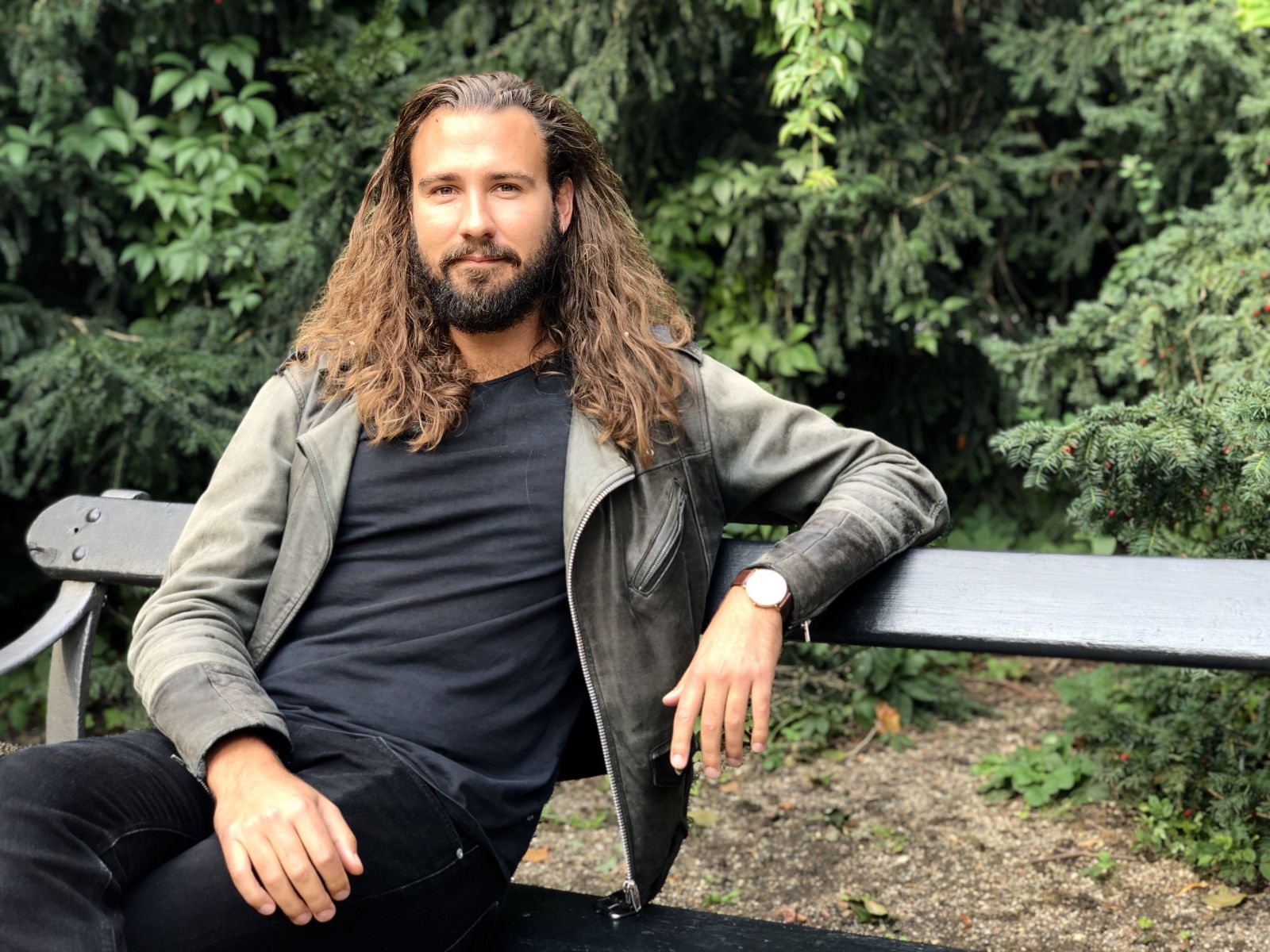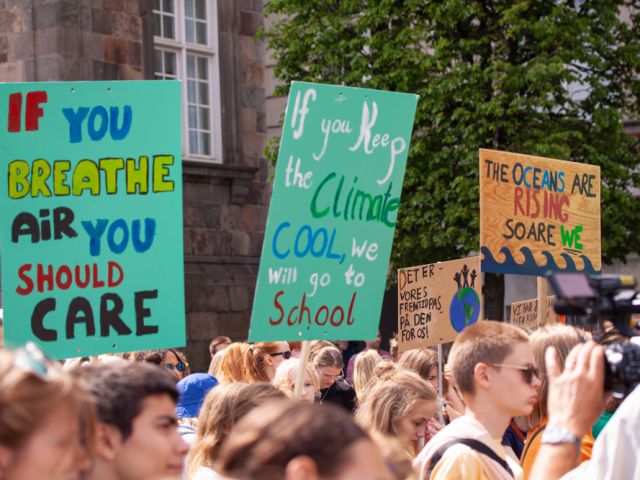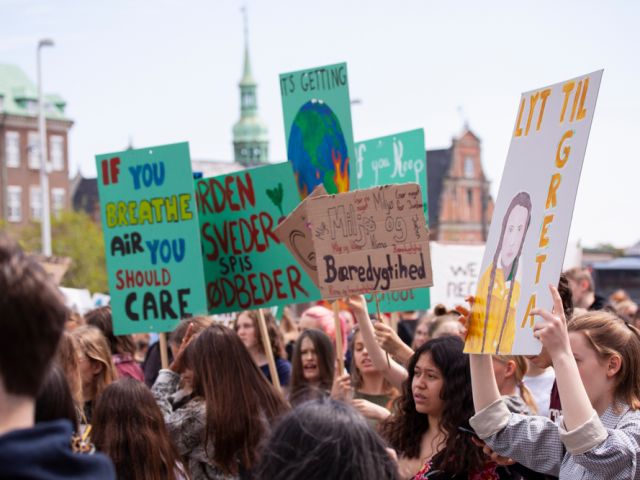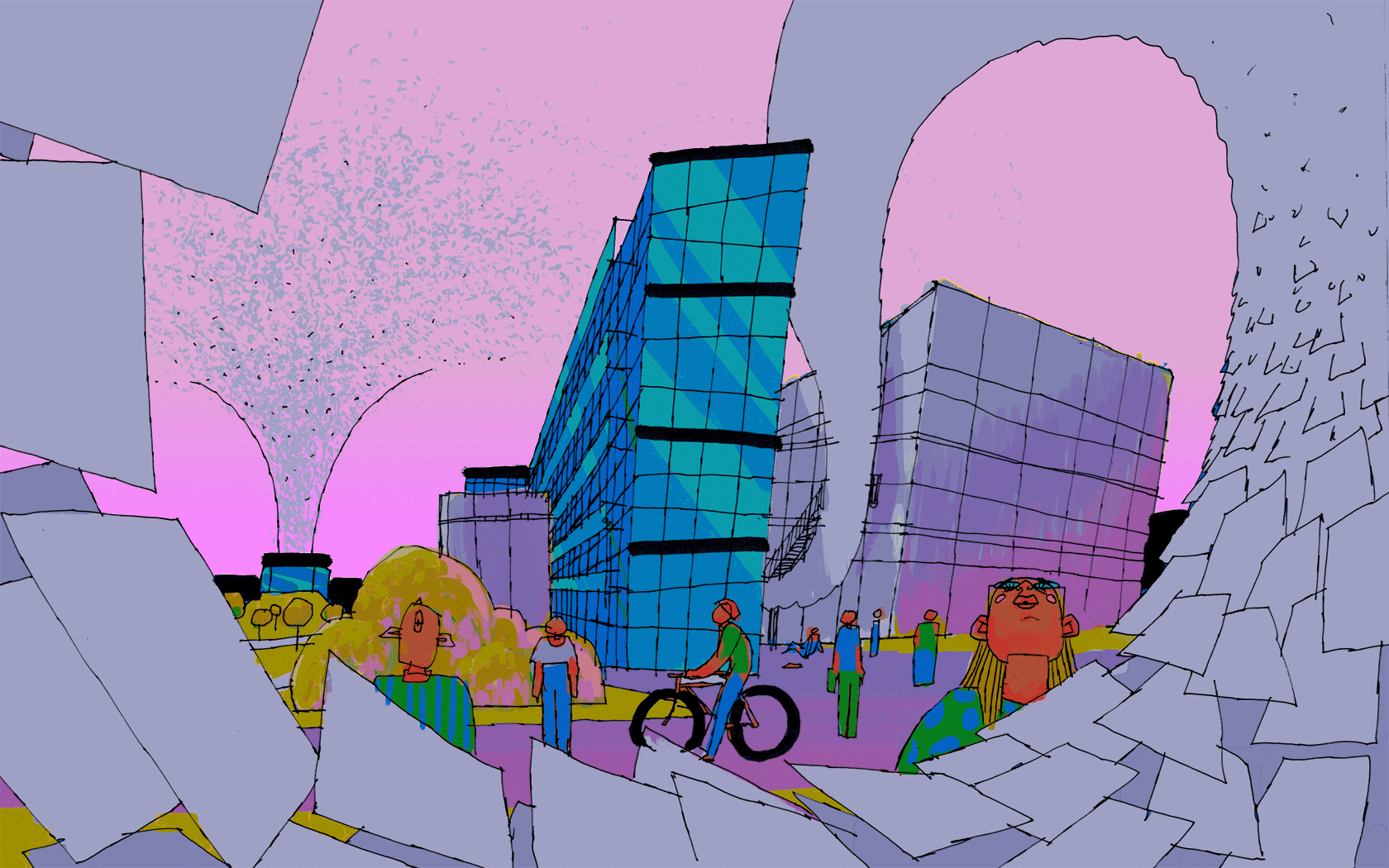Sustainability in The University Act: Are 558 researchers and teachers’ dreams coming true?

Emil Husted, Associate Professor at CBS, follows the re-ignited discussion on including sustainability in the preamble of The University Act. (Photo: Anne M. Lykkegaard)
The Danish government is open to including the climate and biodiversity crises in the object clause of The University Act. One and a half years ago, Associate Professor at CBS, Emil Husted, co-authored an open letter on the matter, which was signed by 558 researchers and teachers. He is following the re-ignited discussion with excitement and concern.
The discussion on whether the object clause of The University Act should contain a focus on sustainability and the climate crisis has been reignited. The Socialist People’s Party (SF) has called the Minister for Higher Education and Science, Ane Halsboe-Jørgensen, and the Minister for Children and Education, Pernille Rosenkrantz-Theil, into consultation on the matter.
“Sustainability is part of the object clause in pre-school, elementary and middle school and the high-school education, so I believe it is clear that vocational training and the universities are included. I am prepared to discuss this with the parliamentary parties when the worst of managing the pandemic has passed,” said Ane HalsboeJørgensen to the Danish newspaper Kristeligt Dagblad before the consultation.
Today, the preamble of The University Act says that “university research and educational results must contribute to promoting growth, welfare and development of society”, and 1.5 years ago, Emil Husted, Associate Professor from the Department of Organization at CBS, co-authored an open letter proposing to include the climate and biodiversity crises in the Danish Act on Universities.
The letter was signed by 558 researchers and teachers from the Danish universities and university colleges.
“Initially, I was quite surprised that this matter has been taken up again and at political level, and I immediately forwarded it to my two co-authors. Back then, our initiative received a lukewarm reception, although Ane Halsboe-Jørgensen was not dismissive of the proposal,” he says.
The organization, “Educations for the Future” (Uddannelser for Fremtiden), is partly to blame for reviving the discussion. In February 2021, the union of 12 pupil and student organizations launched a campaign demanding that sustainability is written into each educational institution’s object clauses.
And although Emil Husted is thrilled that there are actual political discussions on the matter, he also has concerns. In his view, rewriting the preamble should be supported by the other bullet points in the original proposal. Otherwise, the rewriting is just a “symbolic action”, he explains.
“I have my doubts and concerns that the discussion, which is important, is used as a lever in the wrong sense. Perhaps politicians will use it to legitimize further prioritizing the natural sciences and eroding funding for independent research, something we do not condone. Or that this is just green washing. The government has promised a great deal, but not quite delivered, and changing the object clause is free of charge,” he says.
A welcome suggestion
In 2019, the Director of Universities Denmark, Jesper Langergaard, said in an interview with CBS WIRE that the focus on sustainability, the climate and biodiversity crises is already an indirect part of the University Act preamble.
“The Act states that universities should develop our society, find solutions to the challenges we are facing, as well as creating growth and welfare. So, in that case, one could argue that the focus on climate and sustainability is already included,” he said and continues:
“We are fully aware of our responsibility in this case. And this is regardless of whether or not the climate and biodiversity crises are written in the preamble.”
Before the consultation on April 13, 2021, Anders Bjarklev, the President of the Technical University of Denmark (DTU) and Chairman of the Danish Rector’s Conference and spokesperson of Universities Denmark, said to the Danish newspaper Kristeligt Dagblad that he would be excited if sustainability was to be a part of the universities’ object clause.
“It is my clear impression that the majority of Danish universities would eagerly accept such a change. In our experience, sustainability is a theme that students, employees and the boards of the universities have in mind. So the minister should be praised for the initiative,” he said.
Spændende samråd i dag. Meget positivt med integrering af bæredygtighed i formålsparagraffer. DTU uddanner ingeniører, der tager lederskab for bæredygtig forandring. Vores ambition er at bæredygtighed skal være et formelt og aktivt læringsmål i alle vores uddannelser @UddanFrem https://t.co/1wMIKKqBYb
— Anders O. Bjarklev (@ABjarklevDTU) April 13, 2021
Although Emil Husted has his concerns about how the discussion will pan out, he is ready to stand up for the cause.
“It’s an important cause and discussion, and you cannot expect things to turn out exactly as planned. But it’s a battle we’re ready for,” he says and continues:
“Maybe we won’t launch another signature petition, but we will do something to make sure our views are being heard, and that we are not dancing to someone else’s tune. And that’s our responsibility.”
When asked about his dream scenario of how the discussion will end, Emil Husted says:
“My personal dream scenario would be to have sustainability replacing growth in the preamble, and that the other three tangible bullet points from our proposal are realized. But that’s just my dream, I don’t know whether the 557 researchers and teachers agree.”






































































































































Comments